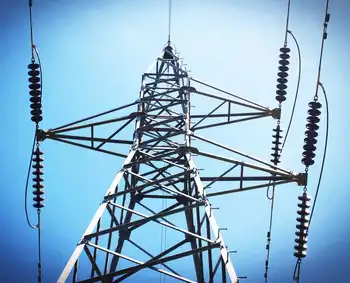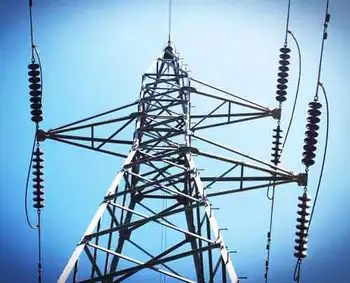Salem's higher power bills not as shocking as last year's
VIRGINIA - Salem residents are paying higher electric rates for the second year in a row - but aren't seeing anything like the 40 percent increase they faced last year.
Starting July 1, the city began adding 0.55 cents per kilowatt hour to most consumers' electric bills. That translates to $5.50 a month per 1,000 kilowatt hours, or in the neighborhood of $6.80 a month for the average residential customer in the city whose bill rose to about $85 a month last year.
The fee - called a power cost adjustment - is designed to help offset the increased wholesale rate the city is paying under a new 20-year contract with Appalachian Power, said Frank Turk, the city's director of finance.
Base rates and charges are unchanged for city residents.
The power cost adjustment "takes care of about half the amount we absorbed last year," Turk said, when the city's wholesale electric costs rose about 75 percent. The city passed on about half the increase directly to consumers in the form of higher rates.
The power cost adjustment will bring in about $1 million this fiscal year, Turk said.
Salem is one of several Virginia localities that operate their own electric distribution systems, rather than having residents served by commercial electric companies.
The city's system, which dates to 1892, provides power to about 10,500 residential and 1,700 business customers. Salem buys electricity at wholesale rates and distributes it to the city's residents through seven substations and 200 miles of transmission lines. The electric department also operates the city's streetlights and traffic signals.
For years, the city's electric rates were among the lowest in the country based on a long-term contract with Cynergy of Ohio. When that arrangement ended in June 2005, the city wasn't able to negotiate a new contract right away. It ended up with a one-year deal with Appalachian Power and significantly higher rates.
This June, Salem City Council approved the two-decade contract with Appalachian Power that calls for gradually increasing rates over the term of the agreement. It begins with a cost of $45 per megawatt hour and could rise to $50 per megawatt hour within five years, City Manager Forest Jones told the council in June.
As part of its budget process, the council left the actual rate adjustments for this year to Turk and Electric Department Director A.K. Briele.
The power cost adjustment can be raised or lowered at any time, Turk said, although that hadn't been necessary for many years under the Cynergy contract. "It's just a mechanism for us to adjust for the cost of fuel... without going back every other year and redoing the electric rate structure," Turk said.
Technically, the adjustment is not exactly the same as the "fuel factor" commercial utilities sometimes add to consumers' bills, but it does fill a similar function.
Appalachian Power in January, for instance, raised its fuel factor from 1.42 cents per kilowatt hour to 1.785 cents per kilowatt hour to offset higher fuel costs.
The increase added $3.65 to the bill of a homeowner using 1,000 kilowatt hours per month.
Salem's power cost adjustment rate "theoretically could go up or down" at any time, but will probably not change during the fiscal year, Turk said.
Related News

OEB issues decision on Hydro One's first combined T&D rates application
TORONTO - The Ontario Energy Board (OEB) issued its Decision and Order on an application filed by Hydro One Networks Inc. (Hydro One) on August 5, 2021 seeking approval for changes to the rates it charges for electricity transmission and distribution, beginning January 1, 2023 and for each subsequent year through to December 31, 2027.
The proceeding resulted in the filing of a settlement proposal that the OEB has now approved after concluding that it is in the public interest.
The negotiated reductions in Hydro One's transmission and distribution revenue requirements over the 2023 to 2027 period total $482.7 million compared to…




